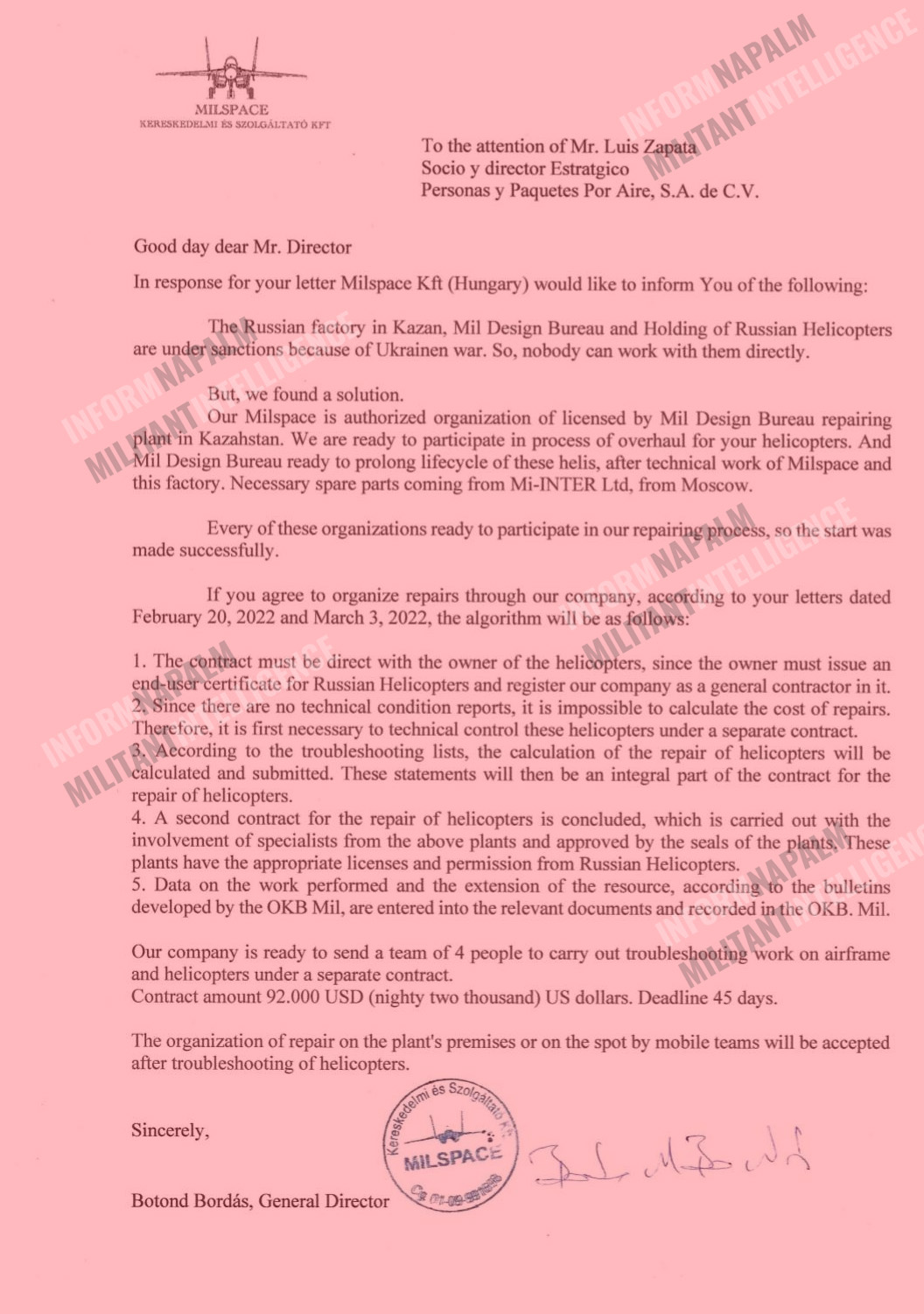The Hungarian company Milspace Kft is helping Russian defense enterprises circumvent international sanctions by using a "gray" logistics scheme, according to documents obtained through the multi-level cyber operation OpsHackRussia’sDay conducted by the international intelligence community InformNapalm and the Militant Intelligence group (INTMILIT).
This was reported by the International Vlunteer Community InformNapalm.
As a result of hacking the internal correspondence of Russian companies connected to the Russian military-industrial complex, links with foreign contractors, including from NATO countries, were revealed. One document—an official letter from Hungarian Milspace Kft to the Mexican firm Personas y Paquetes Por Aire SA de CV—details the sanction-evading scheme.
It states that Russian factories and Mil Moscow Helicopter Plant (KB Mil) are under sanctions due to the war in Ukraine, and no one can work with them directly. However, the company offers to organize "gray" logistics where Milspace Kft acts as the formal contractor, repairs are carried out at a plant in Kazakhstan licensed by KB Mil, and spare parts are supplied from Moscow by the company Mi-INTER Ltd. All work is coordinated with KB Mil and the Russian Helicopters holding, which is part of the state corporation Rostec—a key structure in Russia’s defense industry.

Although Milspace Kft is a private company registered in Hungary, experts emphasize that such military-technical activity, especially related to the repair of Soviet and Russian helicopters, is practically impossible without coordination with government agencies, especially in NATO countries. Access to KB Mil documentation, coordination with Kazakh enterprises, and logistics from Moscow may indicate either tacit support from Hungarian authorities or tolerance by Viktor Orbán’s government.
Hungary has repeatedly demonstrated loyalty to Russia by blocking EU sanctions and hindering military aid to Ukraine both through NATO and the EU. Thus, even the involvement of the formally private Milspace Kft in these schemes effectively aligns with Budapest’s policies, which contradict the interests of NATO and EU allies.
The document mentions a sum of \$92,000—the cost of just one such operation. However, analysts believe there may be hundreds or even thousands of such schemes. If EU and NATO governments launch systematic investigations, these schemes could be exposed and blocked.
The authors of the investigation call on journalists, officials, and diplomats to pay attention to such schemes, which undermine Europe’s security architecture and allow Russia to maintain and develop its military capabilities despite sanctions.





















